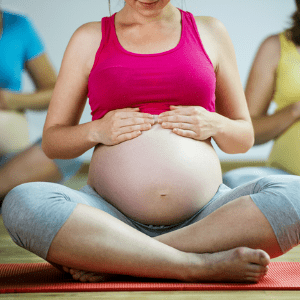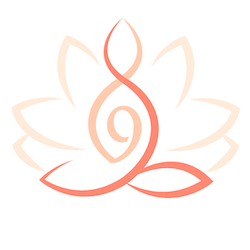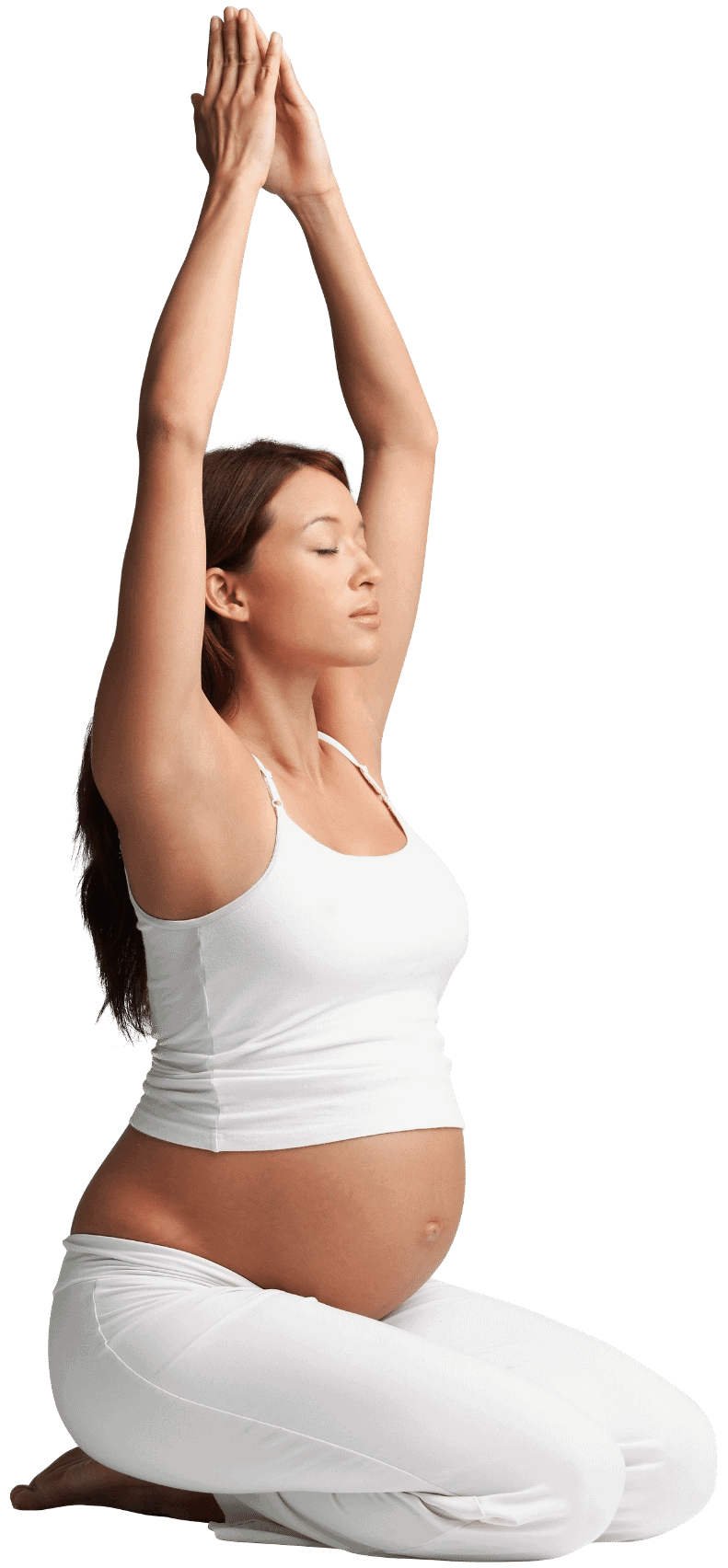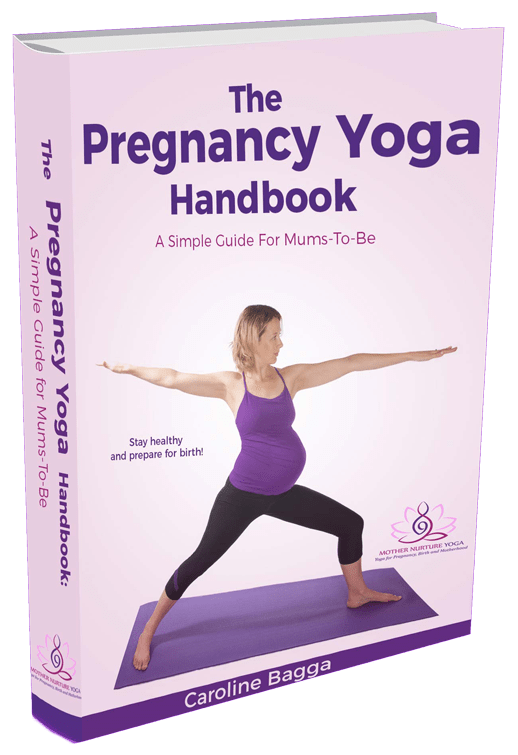Sarah Tooke is a clinical nurse specialist, registered midwife and child birth educator. She’s passionate about educating expectant families and supporting them through those early wake ups after they have their baby. She currently runs online antenatal classes with a difference at www.childbirtheducationonline.com.au as well as offering private in-home antenatal classes around Sydney.
In this interview with Sarah, we asked her all your burning questions about birth.
How many births have you attended?
– I was thinking about that today and I honestly wouldn’t have a clue but, it would have to be hundreds.
Bust a birth myth for us…
– The one I get asked about all the time is will my waters break as the first sign of labour? Of course that’s always what happens in Hollywood because it’s far more interesting and dramatic for the movie! But it’s actually more likely that contractions would start first. Statistically only about 1 in 12 women will have their waters rupture as the first sign of labour.
What’s the number one question you get asked at the moment?
– A question that’s trending at the moment is “Should I be doing antenatal hand expressing?”
There was this trial that came out called the DAME trial, looking particularly at women with gestational diabetes, or any kind of diabetes, whose babies are more likely to require formula or extra feeds in those early days because of a low blood sugar level. They were seeing if women who had colostrum, which is it that first milk which sometimes is present during pregnancy, if they could hand express the colostrum into a little syringe or a spoon and freeze it. Breastmilk can be stored in a freezer for 3 months and then brought to the hospital. If a baby does require extra fluid because their blood sugar is low, or if they have difficulty feeding if there’s an issue with their mouth or there’s issues with the nipples, for instance if they’re flat, then we can use the hand expressed colostrum to feed the baby.
So in certain situations it can reduce the need for formula in addition to breastmilk in those early days which is great.
If you’re pregnant and you’re considering antenatal hand expressing just talk to your midwife or obstetrician first because sometimes they are risk-factors in the pregnancy where it’s not advised to do it. Also we usually only do it the month before you’re due. But it is a really interesting topic and something you might want to look into.
With Covid, the hospitals set rules to limit the number of support people allowed during birth. Are you predicting any changes to those polices any time soon?
– Absolutely, it’s so hard and it is almost an experience of grief that this pregnancy and this birth and immediate post natal period just doesn’t look how way planned. And, you know often knowing you’re only having two or three babies and you do feel a little bit ripped off and disappointed. I totally get that, so we need to validate that.
At the moment, in most hospitals in Sydney it’s just your partner allowed in. Where I work you can have an extra support person in the birth suite but once the birth’s over they have to go. I’m hoping with the COVID numbers improving that maybe they might go back to one or two visitors a day, or something like that, with limited times and obviously getting scanned on the way into the hospital.
Check the websites and the social media of where you’re having your baby, and keep asking, because hospitals are just trying to keep up with the changes as well.
Everything is so uncertain at the moment, it’s tempting for women to not bother preparing and just ‘go with the flow’ and not worry about attending antenatal classes – what are your thoughts on this?
– I think childbirth education is vital regardless of what’s going on in the world. It’s actually more important than ever at the moment to have that contact with a midwife, to be able to ask questions, whether it’s face to face or over zoom.
If you can empower yourself with that information it’s one thing you can control. You’ll have some insights and knowledge to go into the birth with confidence, giving you a little bit of peace with everything else that’s so uncertain.
The other nice thing is to meet other expectant parents can be really helpful to hear what other people are asking and know that you’re not the only one that is feeling unsure.
What are the key differences between independent Childbirth Education versus hospital antenatal classes?
– There’s definitely pros and cons of each and each family needs to choose what’s right for them and their situation.
The hospital classes, obviously they’re quite restricted at the moment with groups, but prior to COVID they can often be quite overbooked because they want to fit everyone in who is wanting to go to their place of birth and have a look around. I know with Covid, at the moment, they’re not letting people into tours with the classes at the hospital, which kind of is one of the benefits of doing them in the hospital and meeting a familiar face who you might see again during birth, and being able to ask hospital specific questions. But in terms of the actual education, it is more of a generalized curriculum, talking about how things work in that hospital with a medical slant.
An Independent Midwife or childbirth education program can be tailored to meet your needs for instance if it’s her first baby and his second or vice versa, or they know they have to have a cesarean for a medical reason, or they had a cesarean before and want to have a vaginal birth this time. So we can really tailor it to their needs and have a look at the nursery set up in their home. And it is broader than just looking at the hospital policies and procedures. We give them the knowledge to be able to ask their caregivers the right questions as well.
How can people sign up for your program?
-We’ve come up with a program www.childbirtheducationonline.com.au that’s the best of both worlds. You get pre-recorded modules with all the information that you can go back and re-watch in your own time and you can access them for 12 months. On top of that, everyone gets access to my calendar to book in for Q & A call via zoom, and I’ll often go back and do private calls if there’s something people don’t want to discuss in a group.
Tell us about the work you do with the Gidget Foundation and how women can access their resources?
– Perinatal anxiety and depression is really common, it affects 1 in 5 mums and 1 in 10 dads. And add on top of that Covid, lack of certainty and support.
Gidget Foundation Australia is a not-for-profit organization, based in North Sydney and their clinical Psychologists will see Mums or Dads if you’re pregnant or have a baby under one. And you can access up to 10 free appointments with them per calendar year with a mental health care plan referral from your GP. They’ve also got some amazing fact sheets on their website to help people through this really hard time as well.
What’s your philosophy around exercise during pregnancy?
-Exercise, particularly courses like Mother Nurture Yoga’s that actually come with education at the same time, and someone that’s full of knowledge to talk to, is incredible!
If you’ve never exercised it’s probably not the time to take up running or join the gym when you’re pregnant. But some sort of gentle, supervised exercise is fantastic. Because it will keep you moving. You need to keep fit for birth – birth is hard work! And breathwork and mindfulness is so beneficial at the moment. Especially when those boundaries are blurred with working from home, to be able to switch off and have an hour for yourself.

Visit our timetable to book your trial Pregnancy Yoga class now!
Do you see a difference in the birth suite for women who have done pelvic floor work during pregnancy?
-Yes 100%! And I must say, as a midwife if women say they’ve done prenatal yoga, I kind of breathe a sigh of relief. They have some insight into their body, they’ve kept active and they know how to breathe. So I can just remind them to tap into what they’ve already learned.
But as to the pelvic floor there’s not a lot of awareness, and not a lot of midwifes talking about it in a typical antenatal education program. It’s really often left to the physios to deal with afterwards. But I honestly say people who have some sort of awareness and are able to connect to the pelvic floor through the breath it makes them so much more confident in that second stage, or that pushing stage of the labour and I do find that they push better because they’re less scared and they’re more body aware.
Finally – what’s your best piece of advice for women who are due to give birth soon?
Best tip is to just hang on for the ride, it is amazing. The positives definitely outweigh any of those negative scary stories that people will tell you. Block your ears off to anyone else’s birth story. Breathe. Take a heat pack with you. That is one of the main things I say to pack in your bag. And just be present and enjoy those early moments with your baby. Because you don’t get them back and they are so special.

Give birth with confidence – join our Couples Birth Preparation course






